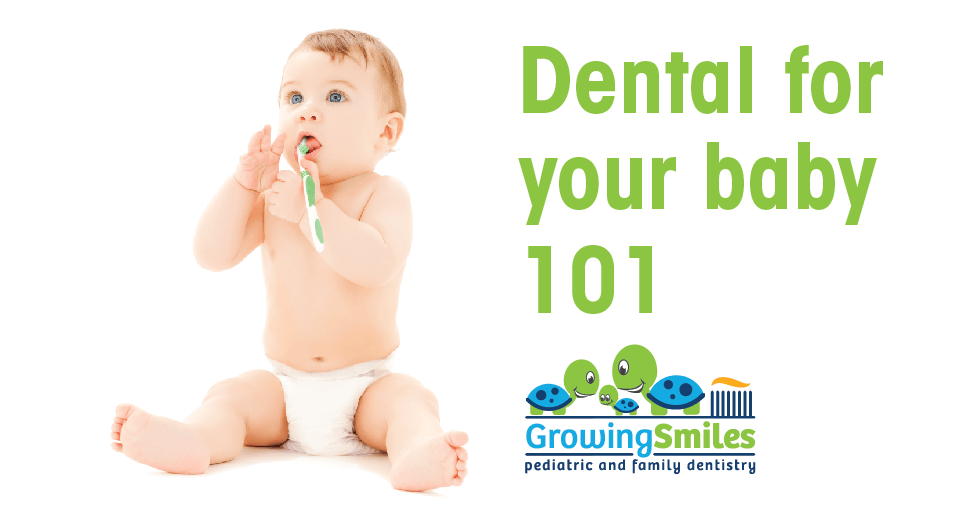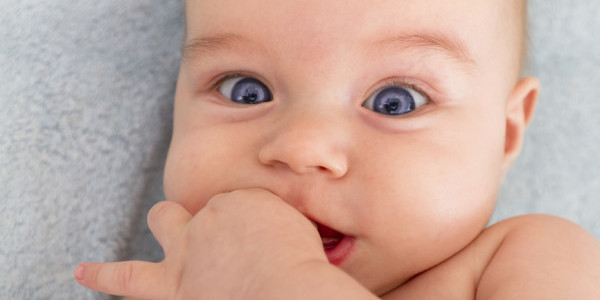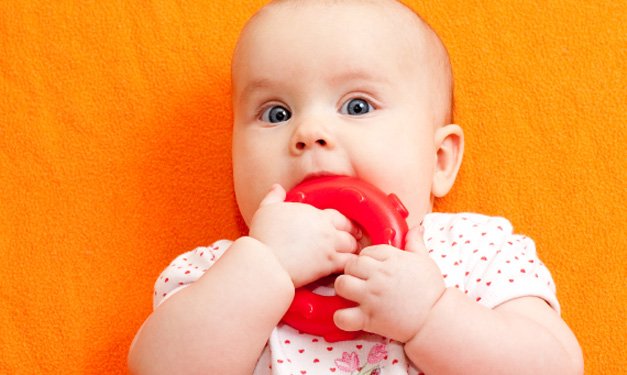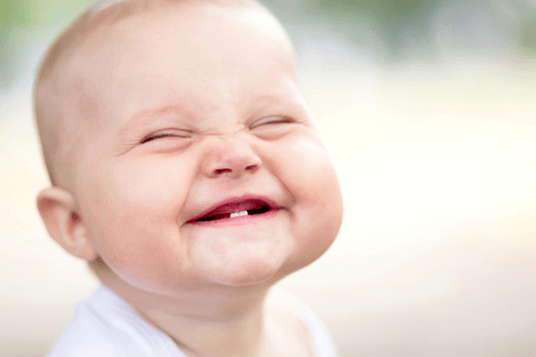 As a parent there are a million questions running through your mind when bringing a new baby home, and thinking about your baby’s teeth before you can even see them is probably not top of the list. However, knowing things such as when to schedule your child’s first dental appointment or how to handle their first tooth are things to think about. After all, your child’s baby teeth are at risk for decay as soon as they first appear, which is typically around 6 months of age. Here is a simple guideline to follow to help answer your questions and to get your baby on their way to a lifetime of healthy smiles.
As a parent there are a million questions running through your mind when bringing a new baby home, and thinking about your baby’s teeth before you can even see them is probably not top of the list. However, knowing things such as when to schedule your child’s first dental appointment or how to handle their first tooth are things to think about. After all, your child’s baby teeth are at risk for decay as soon as they first appear, which is typically around 6 months of age. Here is a simple guideline to follow to help answer your questions and to get your baby on their way to a lifetime of healthy smiles. Before Your Baby’s First Tooth

Before your baby gets their first tooth (usually before 4-7 months old), you will want to know how to help prevent the buildup of plaque. The bacteria that makes up plaque can lead to greater risks for your infant, such as gum and tooth decay. To help prevent this, we recommend frequent cleanings of your newborns gums using a damp washcloth. This should usually be done after a feeding. A lot of formulas contain some amount of sugar, so it’s good to preform cleanings after every meal. Along with the cleanings, we also recommend avoiding sending your baby to bed with other sugary drinks such as juice. These tips can help prevent “baby bottle decay”, which can occur in 15% of children and is the main cause of the quick and brutal decay of baby teeth.
Helping Your Baby Through the Teething Process

Teething, although a completely natural process, can be pretty difficult at times for both you and your baby. Most commonly, the two lower front teeth come in around 6 months old, followed closely behind by the two upper front teeth. The rest of the teeth will start coming within the next 18-24 months. At this time, your infant will start to show signs of teething, such as fussiness, drooling, and the urge to put everything in their mouth. This can be an uncomfortable process for your little one, but here are many things you can do to help sooth the pain. Start by rubbing the gums with a clean finger or a wet gauze pad. You could also purchase a cooling teething ring that will help alleviate the pain. Lastly, try heading over to your local pharmacy and trying different teething medications that can be rubbed on the gums.
First Tooth

As soon as your baby’s first tooth comes in, it’s time to schedule their first dental appointment. It’s also time to start learning how to brush your newborn’s teeth the proper way. Baby teeth are extremely susceptible to cavities, gingivitis, and tooth decay. Start by brushing your infants teeth for two minutes, twice a day. This helps familiarize your baby with the correct brushing time and prevent any tooth decay. Dr. Sekhon will be happy to demonstrate good brushing techniques at your baby’s first visit.
Recommended Products for Healthy Baby Teeth

Baby teeth require specific attention that is different from adult teeth due to the fact that they are still growing. Before your child gets to age 2-3 years of age, you will want to choose a toothpaste that is safe to swallow, fluoride free, and contains no artificial colors or preservatives. You will also want to use a toothbrush that contains extra soft bristles. Once they turn 2-3 years old, you can switch to a toothpaste that contains fluoride, but only under strict supervision. These regular cleanings will help encourage good oral hygiene habits early on that will stick with them as they grow older.
Your baby’s teeth are important, and keeping them healthy is crucial. Is it time for your baby’s first dental visit? Call Growing Smiles today and start your little one on the path to great oral health!
